What do arts-based research approaches offer for the protection of the human rights for small-scale fishers?

Small-scale fishers (SSF), in many countries, have struggled to have their human rights meaningfully recognised and effectively protected in environmental and natural resource governance. Notably these struggles are compounded for Indigenous peoples who have a long history of fishing for subsistence and cultural heritage. Even within countries that have policies aimed at protecting small-scale fishers’ rights, fishing communities too frequently these find themselves excluded and marginalised in decision-making process about the ocean, from which they derive their sense of identity and their livelihoods.
Formal government and other stakeholder consultation meetings on ocean use planning and development are usually held in a traditional lecture-style format. Here government officials and other experts talk through complex presentations with maps, graphs, and scientific and policy jargon. For small-scale fishers in South Africa, who have deep local knowledge about the ocean but do not necessarily have the specialised technical literacy to interpret presentations of this kind, these meeting feel exclusionary. Small-scale fishers experience these processes as checkbox exercises in which their voices seldom make an impact on decisions related to the ocean. Many fishers feel a sense of anxiety and frustration in this regard. Ocean governance and marine spatial planning decisions made without them not only impact on their livelihoods and wellbeing, but on their ability to reproduce cultural, spiritual and heritage practices that are fundamental to their sense of place and being in the world.
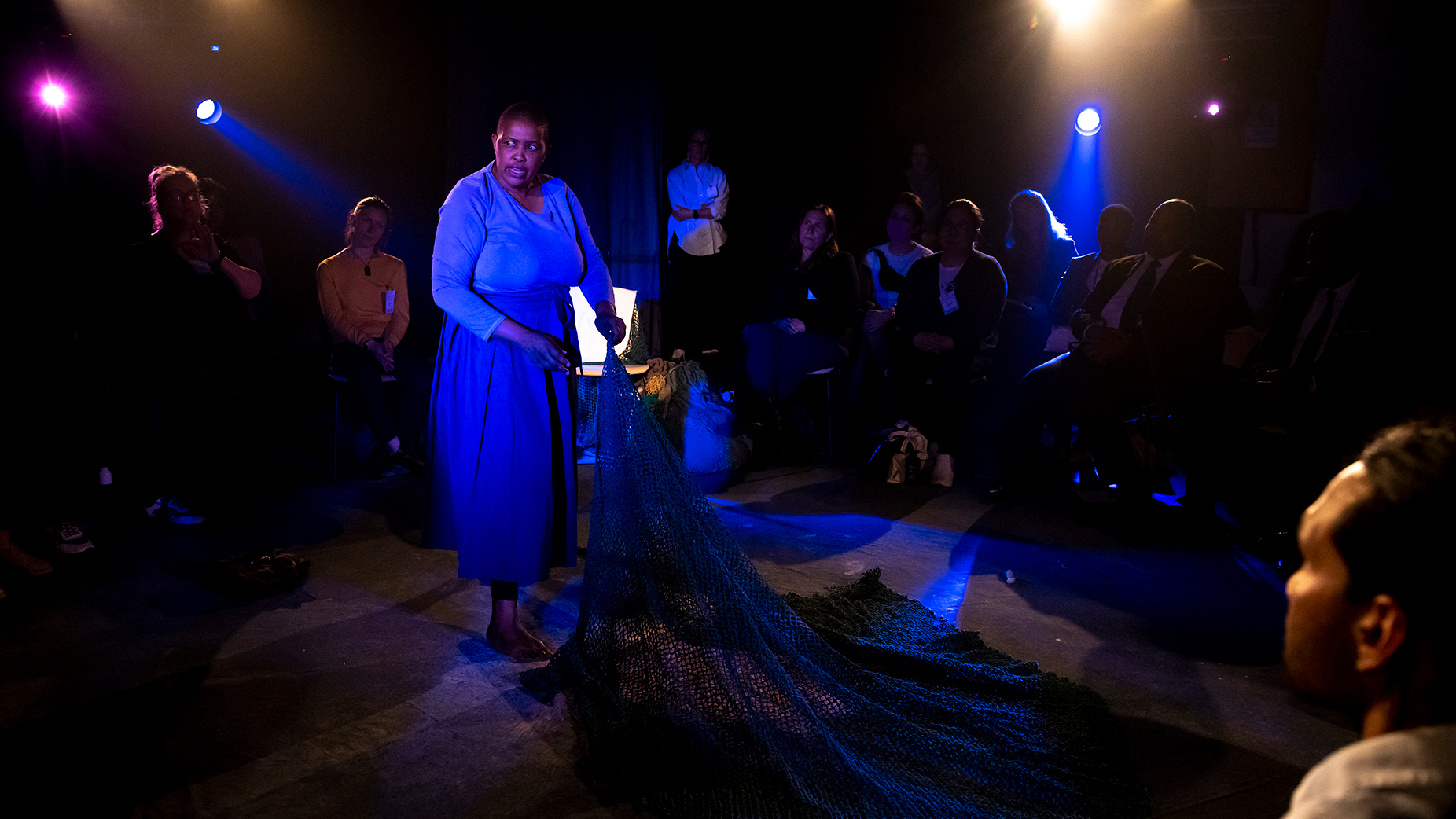
What is lost in these formal consultations is a sense of participatory democracy in which small-scale fishers feel they can actively contribute to governance and regulatory frameworks. Over the last 4 years, One Ocean Hub researchers in South Africa have pioneered participatory and inclusive art-based research methods and responses to the marginalisation of small-scale fishers. Arts-based research approaches have useful methods and techniques for shaping equitable and inclusive public dialogue forums. Through paying careful attention to power dynamics arts-based approaches can find alternative mediums, methods and languages for inclusive and meaningful participation. Arts-based approaches such as research-based theatre (using a unique methodology developed by Empatheatre), alternative mapping so that coastal communities can engage with and add their own knowledge to spatial mapping, animations that share spiritual and cultural connections to the oceans, and photo-stories can also be used to create transformative spaces for public dialogue and inclusive social processes.
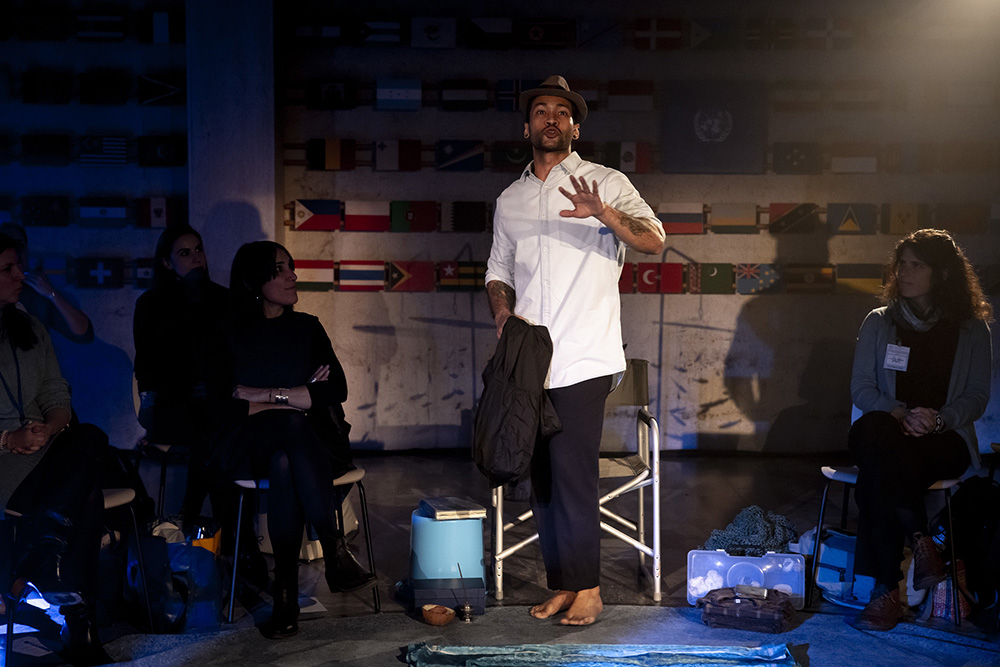
These creative methods have been used as part of the Coastal Justice Network – a nation-wide knowledge-support network of small-scale fishers, Indigenous peoples, researchers, NGOs and legal-aid organisations – that have influenced national courts, local authorities and international processes such as the UN Climate Summit and UN consultations on environmental human rights defenders to include “ocean defenders”. This year the One Ocean Hub team ran two workshops to explore how a range of creative methods can assist to better engage with, and secure the rights of, Small-Scale Fishers within ocean governance.
The first workshop was part of the IYAFA closing events in Rome in March, and the second during the UN World Ocean Week in New York in June, 2023. These workshops created an interactive and dynamic social learning experience, including an adapted invisible theatre experience, where participants could experience in a lived embodied sense what current consultations are like in South Africa. Participants explored together how co-developing distinctive art-based and knowledge-solidarity approaches for protection of SSF’s human rights might work in different geographic contexts and scales. Beyond sharing methods and tools that open up dialogue and space for diverse knowledge holders to be valued, the workshop discussions reminded us how important it is to focus on process and practice for inclusive decision making.
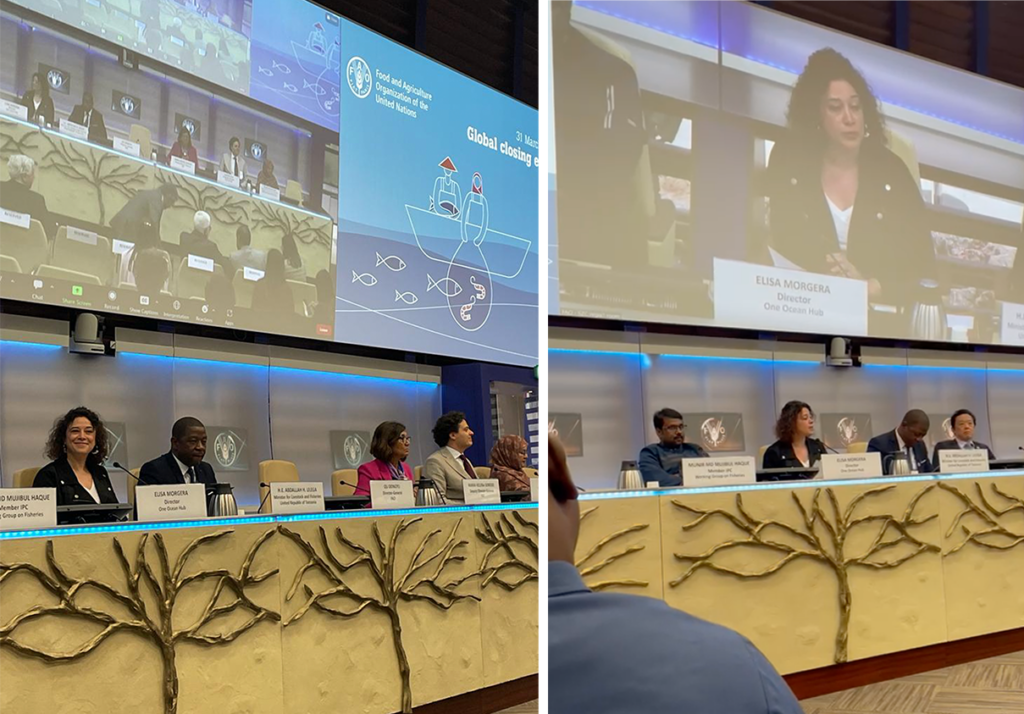
Public consultations are usually called and convened by those who hold more power and privilege then the participants they invite. This means that those who host the meeting need to remember to respect and value people’s time and input that they have generously given in order to attend. Arts-based approaches allow us to step out of conventional structures, such as setting up the room in a lecture theatre style in which those who hold power stand on a platform, and into a more careful consideration of form. Sitting in a circle, making space for people to sing cultural greeting songs, or carving out time for people to talk in small groups before sharing their views, all fundamentally shift public dialogue spaces and the decisions that are agreed upon within them.
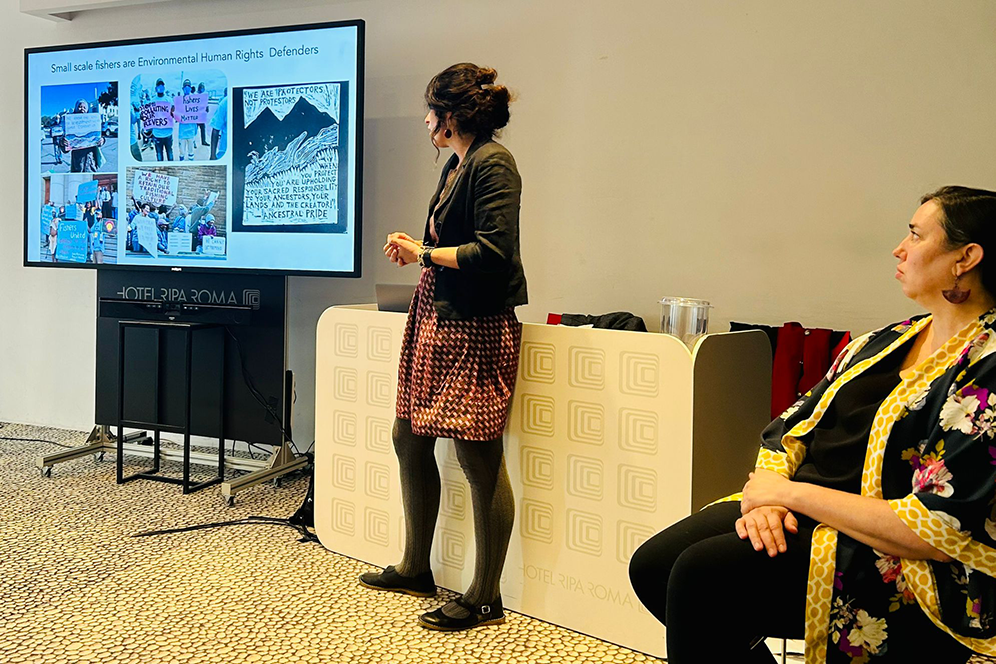
Even highly technical tools such as mapping can be reimagined to be more inclusive processes. Small-scale fishers may not be trained in the tools of spatial design used in Marine Spatial Planning, for example. But they have vast knowledge about how and when fish move across their fishing grounds, and what other kinds of activities interfere or impact these patterns. Arts-based approaches remind us of what we may learn if, instead of presenting an already complete map of an area using expensive software, we draw a chalk map on the floor of a community hall that works with local reference points and imagery. Creativity can free up our approach to engaging others in decision making, offering exciting ways to expand scientific forms of producing knowledge to include Indigenous knowledge systems and socio-cultural understandings of the oceans. In doing so, arts-based research approaches can work towards more equitable and inclusive decision-making to ensure we collectively reach SDG14 and protect human rights.
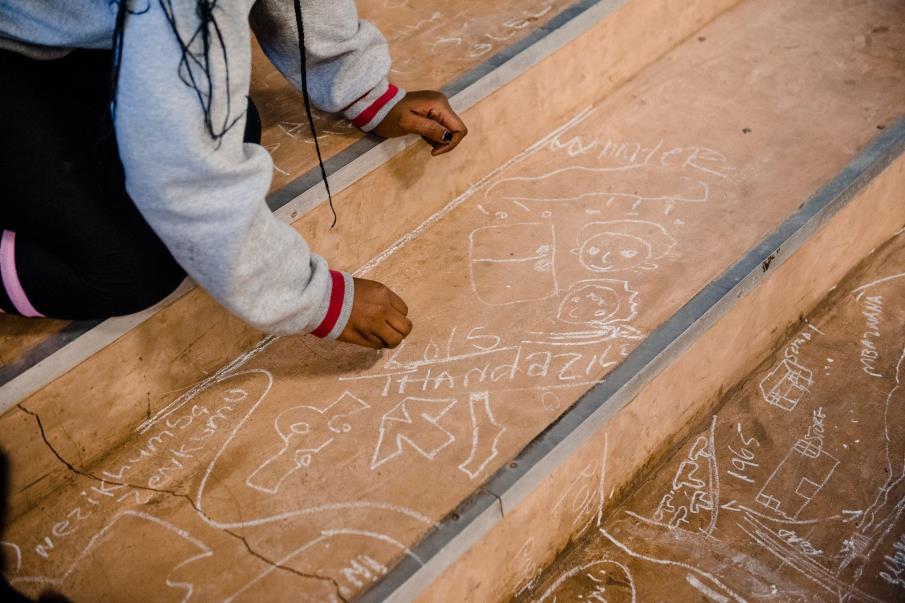
Related SDGs: